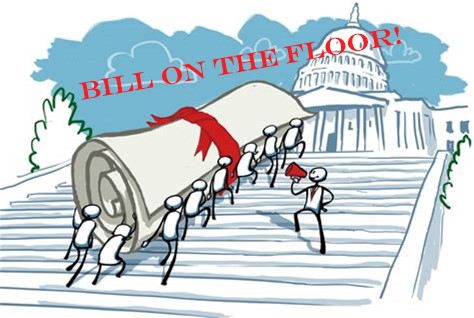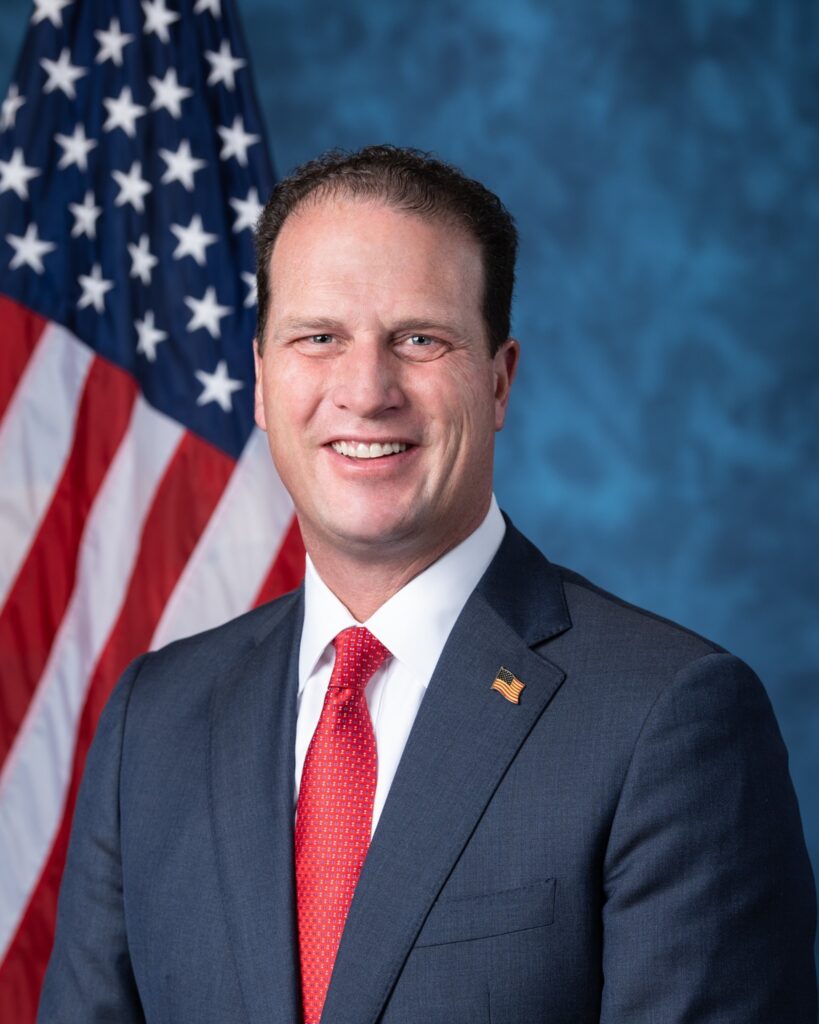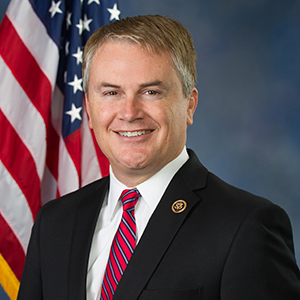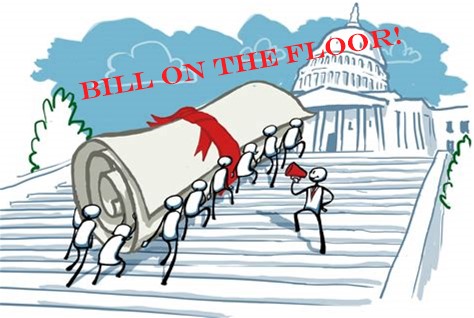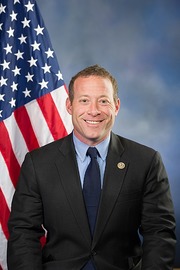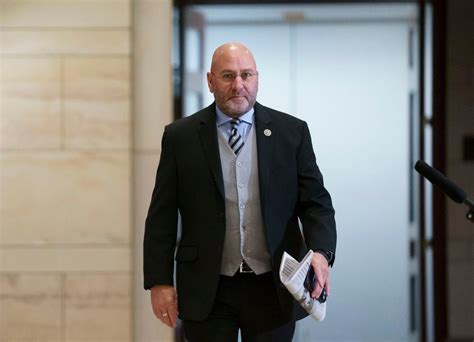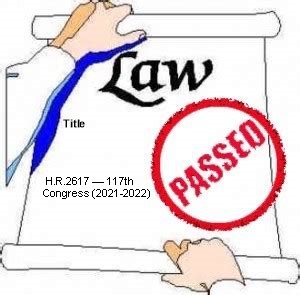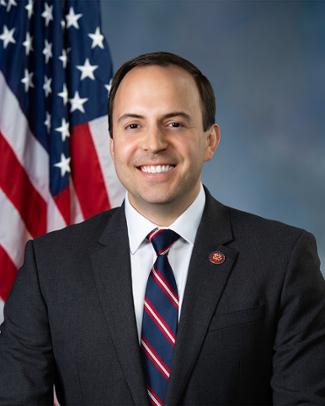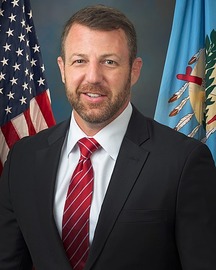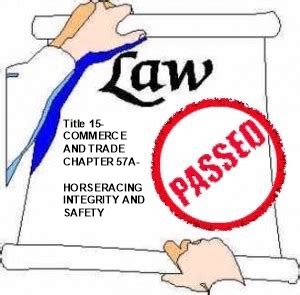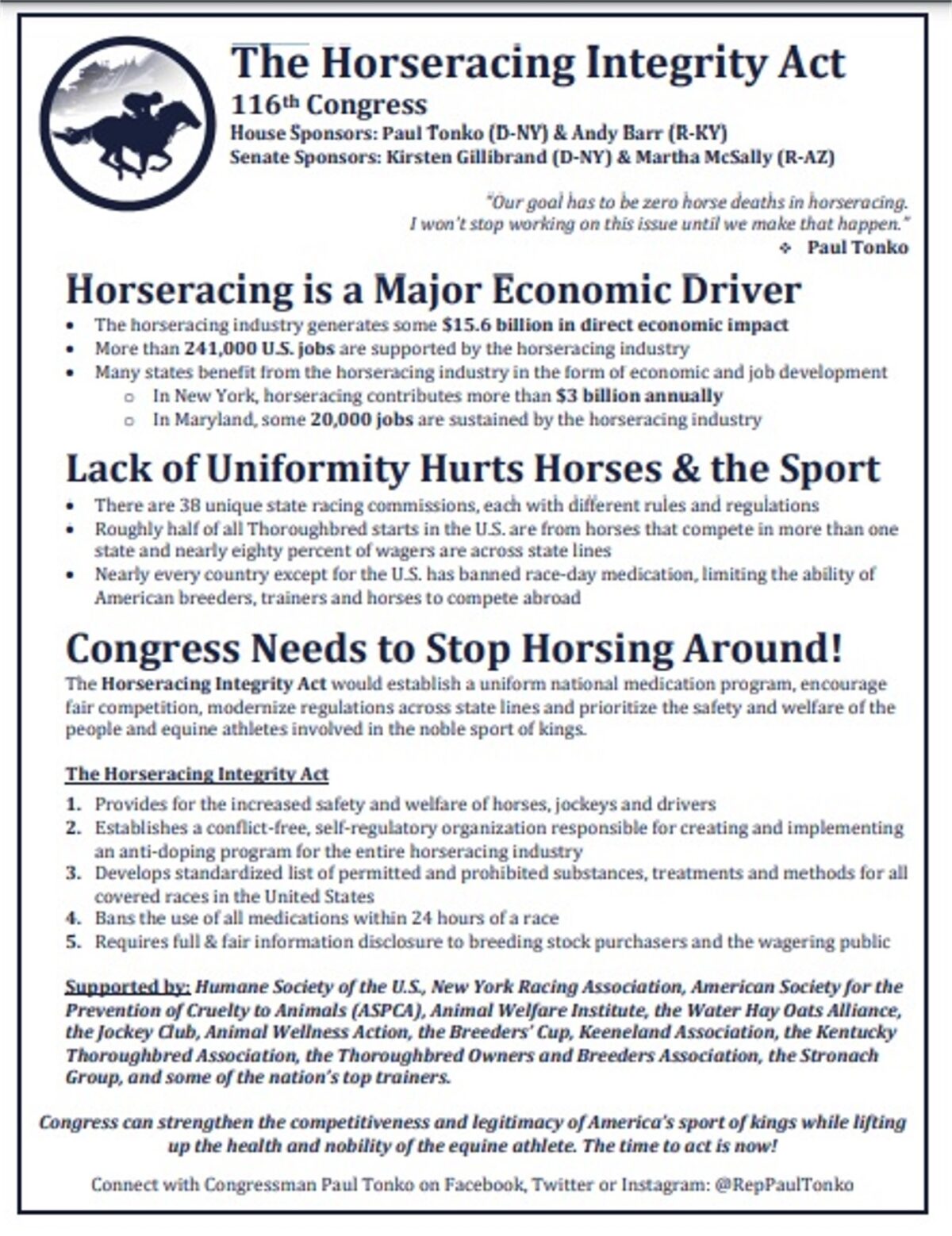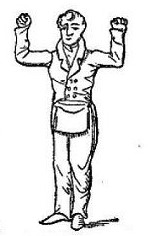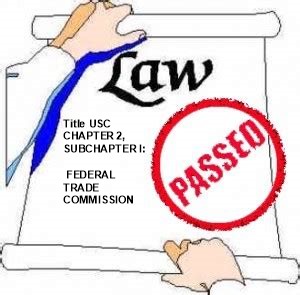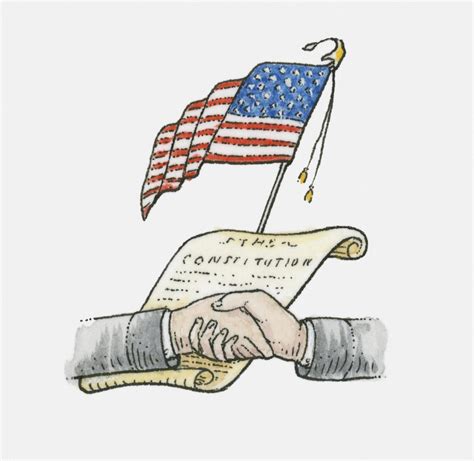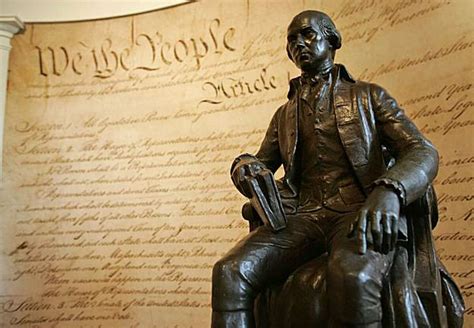The Horseracing Integrity Act
116th Congress
House Sponsors: Paul Tonko (D-NY) & Andy Barr (R-KY)
Senate Sponsors: Kirsten Gillibrand (D-NY) & Martha McSally (R-AZ)
The Horseracing Integrity Act:
116th Congress
House Sponsors: Paul Tonko (D-NY) & Andy Barr (R-KY)
Senate Sponsors: Kirsten Gillibrand (D-NY) & Martha McSally (R-AZ)
“Our goal has to be zero horse deaths in horseracing.
I won’t stop working on this issue until we make that happen.”
❖ Paul Tonko
Horseracing is a Major Economic Driver
The horseracing industry generates some $15.6 billion in direct economic impact
More than 241,000 U.S. jobs are supported by the horseracing industry
Many states benefit from the horseracing industry in the form of economic and job development
o In New York, horseracing contributes more than $3 billion annually
o In Maryland, some 20,000 jobs are sustained by the horseracing industry
Lack of Uniformity Hurts Horses & the Sport
There are 38 unique state racing commissions, each with different rules and regulations
Roughly half of all Thoroughbred starts in the U.S. are from horses that compete in more than one
state and nearly eighty percent of wagers are across state lines
Nearly every country except for the U.S. has banned race-day medication, limiting the ability of
American breeders, trainers and horses to compete abroad
Congress Needs to Stop Horsing Around!
The Horseracing Integrity Act would establish a uniform national medication program, encourage
fair competition, modernize regulations across state lines and prioritize the safety and welfare of the
people and equine athletes involved in the noble sport of kings.
The Horseracing Integrity Act
Provides for the increased safety and welfare of horses, jockeys and drivers
Establishes a conflict-free, self-regulatory organization responsible for creating and implementing
an anti-doping program for the entire horseracing industry
Develops standardized list of permitted and prohibited substances, treatments and methods for all
covered races in the United States
Bans the use of all medications within 24 hours of a race
Requires full & fair information disclosure to breeding stock purchasers and the wagering public
Supported by: Humane Society of the U.S., New York Racing Association, American Society for the
Prevention of Cruelty to Animals (ASPCA), Animal Welfare Institute, the Water Hay Oats Alliance,
the Jockey Club, Animal Wellness Action, the Breeders’ Cup, Keeneland Association, the Kentucky
Thoroughbred Association, the Thoroughbred Owners and Breeders Association, the Stronach
Group, and some of the nation’s top trainers.
Congress can strengthen the competitiveness and legitimacy of America’s sport of kings while lifting
up the health and nobility of the equine athlete. The time to act is now!


